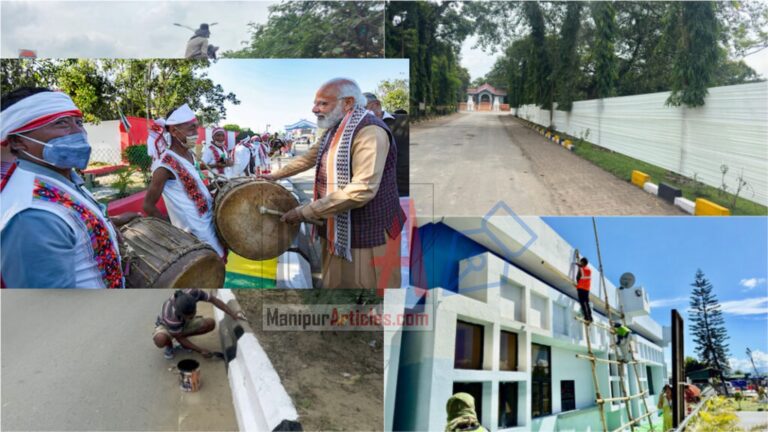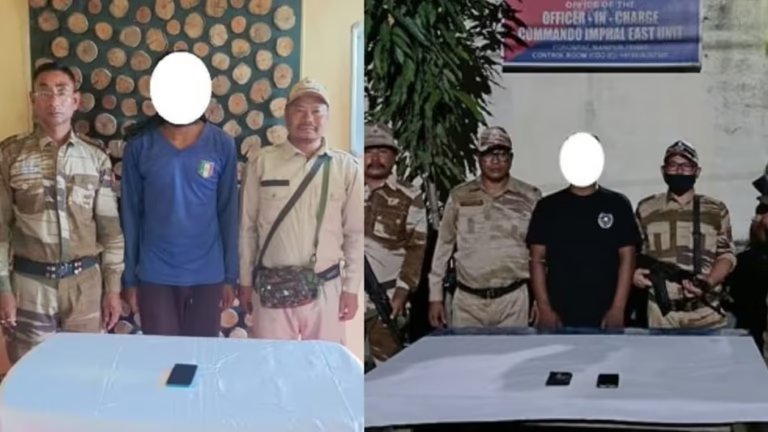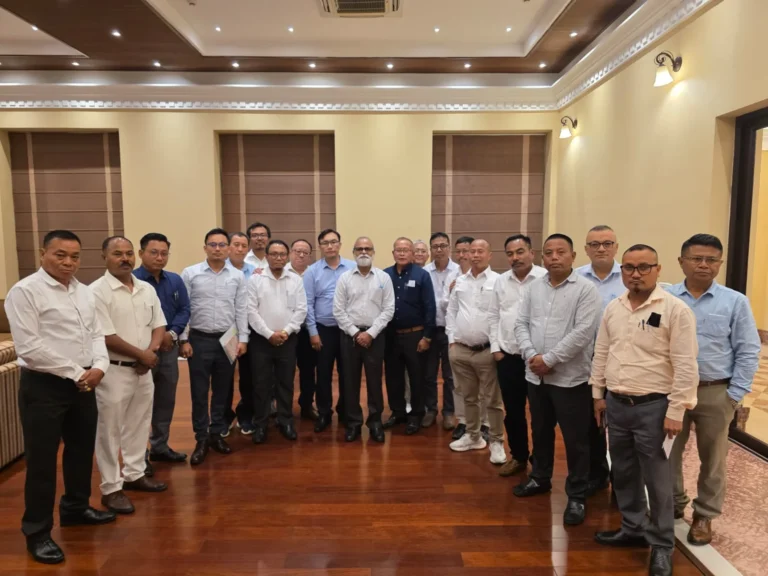Manipur Health Minister Seeks Public Cooperation in Fighting Dengue: A Call to Action Amid Rising Cases
Summary of the News Article
Manipur’s Health Minister has called on the public to actively participate in efforts to combat the rising cases of dengue in the state. The appeal comes amid a spike in cases, with authorities urging preventive measures like maintaining cleanliness and avoiding stagnant water, which serves as a breeding ground for mosquitoes. The government is intensifying its efforts but emphasizes that public cooperation is crucial in this fight against dengue.
Introduction: Fighting Dengue in Manipur – Why Your Help is Vital
Dengue, a mosquito-borne viral infection, is an ever-growing concern in many parts of India, and Manipur is no exception. With increasing cases being reported in various regions of the state, the Manipur government is pulling out all the stops to control its spread. But here’s the thing – they can’t do it alone.
Health Minister Sapam Ranjan Singh recently made a public appeal, urging every citizen to take part in the battle against dengue. Sounds simple, right? But the truth is, combating dengue requires a lot more than government efforts alone. It’s a community-wide responsibility, and that’s where you come in.
In this article, we’ll break down what dengue is, why it’s such a huge issue in Manipur, and most importantly, what steps you can take to help fight this deadly virus. Let’s get into it.
What is Dengue, and Why Should We Be Concerned?
Dengue fever is caused by the dengue virus, which is transmitted to humans through the bite of infected Aedes mosquitoes, particularly Aedes aegypti. Symptoms range from mild fever to severe flu-like symptoms and can even escalate into life-threatening conditions if not treated early. What makes dengue particularly dangerous is the speed at which it spreads, especially in regions with poor sanitation and stagnant water bodies.
Why is Manipur at Risk?
Manipur’s tropical climate, with its heavy monsoon rains, creates the perfect environment for mosquitoes to breed. The state is dotted with areas of stagnant water post-rainfall, which are essentially mosquito breeding grounds. Combine this with limited healthcare infrastructure in rural regions, and you have a recipe for rising dengue cases.
A Growing Threat
While dengue has been an issue in the past, recent years have seen a troubling rise in cases, prompting an urgent need for action. The Manipur government is keenly aware of this growing threat, and while it has ramped up preventive measures, the state’s Health Minister knows that community participation is key to turning the tide.
Government Initiatives: What is Being Done to Fight Dengue?
Strengthening Public Healthcare Infrastructure
The government has been proactive in bolstering healthcare services, especially in dengue hotspots. More hospitals are equipped with better diagnostic facilities, and specialized dengue treatment wards have been set up in key districts. The Minister has ensured that healthcare facilities are more accessible, especially in rural regions, where people often lack the means to access timely medical care.
Public Awareness Campaigns
To make sure the public understands the severity of dengue, the government has launched a series of awareness campaigns. These campaigns focus on educating people about preventive measures, the importance of hygiene, and how to recognize early symptoms of dengue fever. From radio announcements to social media outreach, the government is leveraging multiple platforms to spread the word.
Mosquito Control Measures
In tandem with awareness campaigns, large-scale fumigation drives are being carried out in dengue-prone areas. The government has also distributed mosquito nets, insect repellent, and encouraged the use of mosquito coils and sprays. The Health Minister has made it clear that such efforts are only effective when combined with community participation.
Public Cooperation: What You Can Do to Help Fight Dengue
Now that we know what the government is doing, let’s talk about what you can do. After all, the most important weapon in the fight against dengue is prevention, and that starts at home.
1. Eliminate Stagnant Water
Mosquitoes breed in stagnant water, so make sure to regularly check your home and surroundings for any places where water might collect. This could be flower pots, buckets, or even empty containers. If you spot any stagnant water, get rid of it immediately.
2. Use Mosquito Nets and Repellents
One of the easiest and most effective ways to avoid getting bitten by mosquitoes is to sleep under a mosquito net. Similarly, use insect repellent, especially during early morning and late afternoon when mosquitoes are most active.
3. Maintain Cleanliness
A clean environment reduces the chances of mosquito breeding. Keep your home and surroundings clean and free from trash. Be mindful of open drainage systems, as they can become breeding grounds for mosquitoes if not managed properly.
4. Wear Protective Clothing
Whenever possible, wear long-sleeved shirts and long pants, especially during the rainy season. This simple measure can drastically reduce the number of mosquito bites.
5. Spread Awareness
Talk to your friends, family, and neighbors about the importance of dengue prevention. Share tips, encourage cleanliness, and keep the conversation going. The more people involved, the better the chance of controlling the spread of dengue.
The Role of Local Communities in Dengue Control
Community-Led Cleanliness Drives
Several local communities in Manipur have already taken matters into their own hands by organizing cleanliness drives. These efforts, often led by neighborhood committees or youth groups, focus on clearing stagnant water from public spaces, cleaning drainage systems, and making sure that mosquito breeding grounds are kept in check.
Such community-driven initiatives complement government efforts and serve as a great example of how local participation can make a real difference in the fight against dengue.
School Programs and Youth Involvement
Involving the younger generation in dengue prevention is another crucial aspect. Schools are encouraging students to participate in cleanliness activities and spreading awareness among their families. When kids are involved, entire households tend to follow, making it a multi-generational effort.
Challenges in the Fight Against Dengue: What Still Needs to Be Done
While the government’s efforts and public cooperation are essential, there are still several challenges in controlling dengue effectively.
1. Lack of Proper Sanitation in Rural Areas
One of the most significant challenges is the lack of proper sanitation in rural parts of Manipur. Many rural households still struggle with poor drainage systems and water storage practices, which can contribute to mosquito breeding.
2. Limited Access to Healthcare
Despite improvements, healthcare access in remote regions remains a concern. The government has set up more healthcare facilities, but many people in remote areas still struggle to get timely medical attention. Expanding healthcare access further, especially in the context of dengue treatment, remains a priority.
3. Climate Change and Increasing Mosquito Population
As climate patterns change, mosquito populations are expected to increase, making dengue outbreaks more frequent and widespread. This means that preventive measures must be continuously updated to tackle these evolving challenges.
Looking Ahead: How Manipur Can Win the Battle Against Dengue
The fight against dengue is far from over, but with a solid plan, strong government intervention, and public cooperation, Manipur can turn the tide. The ongoing efforts, from public awareness campaigns to healthcare improvements, lay the groundwork for a dengue-free future.
However, the real key to success lies in how well the community responds. When individuals take responsibility for their environment, eliminate mosquito breeding grounds, and spread awareness, the entire state benefits.
As Health Minister Sapam Ranjan Singh pointed out, it’s a collective fight, and with everyone’s participation, dengue can be controlled and even eradicated from the state.
FAQs
- What are the most common symptoms of dengue?
The most common symptoms include high fever, severe headache, pain behind the eyes, joint and muscle pain, rash, and mild bleeding. - How does dengue spread?
Dengue is spread through the bite of infected Aedes mosquitoes, which typically bite during the early morning and late afternoon. - What is the government doing to fight dengue in Manipur?
The government has launched public awareness campaigns, initiated mosquito control measures like fumigation, and improved healthcare facilities to treat dengue patients. - How can I protect myself from dengue?
You can protect yourself by using mosquito nets, repellents, eliminating stagnant water from your surroundings, and wearing long-sleeved clothing. - Is there a vaccine for dengue?
Yes, there is a dengue vaccine available in some countries, but prevention through cleanliness and mosquito control remains the most effective method.




